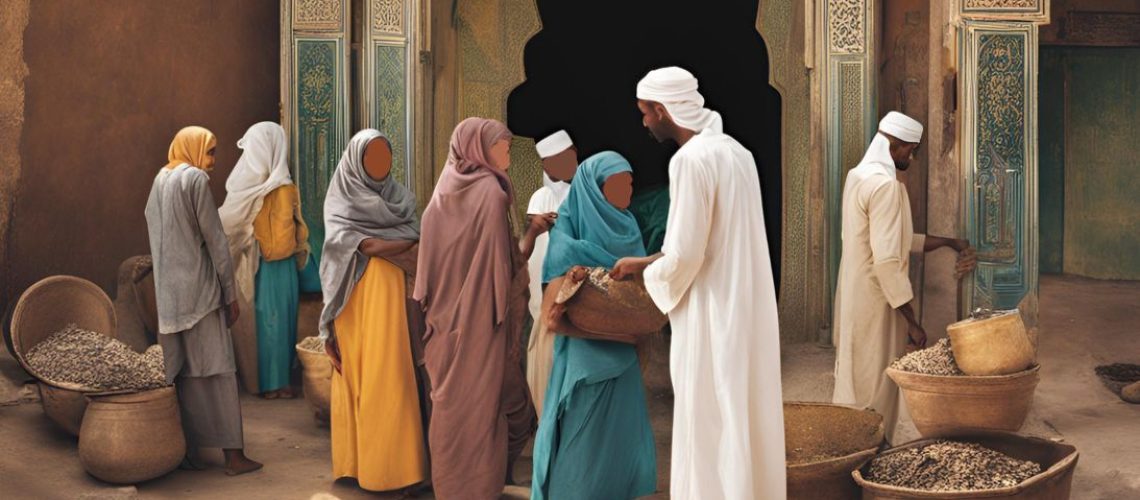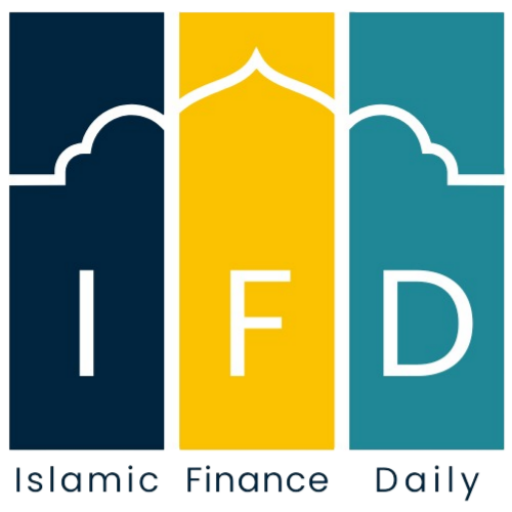In a world grappling with poverty and financial exclusion, Islamic microfinance emerges as a transformative force. Rooted in the principles of equity, inclusion, and sustainable development, Islamic microfinance offers a beacon of hope for marginalized communities, fostering entrepreneurship and self-reliance.
This article delves into the fundamental concepts of Islamic microfinance, showcases successful projects, and highlights its potential to reshape lives across the globe.
Table of Contents
ToggleUnderstanding Islamic Microfinance
Islamic microfinance is a unique approach that blends Islamic ethics with modern financial principles to serve underserved communities. It aims to alleviate poverty, promote social justice, and create financial opportunities by adhering to Islamic law, or Shariah. Unlike conventional finance, which often relies on interest-based transactions, Islamic microfinance offers interest-free alternatives and focuses on fairness and equity.
Key principles of Islamic microfinance include:
- Prohibition of riba, or interest, ensuring that financial dealings remain ethical and fair.
- Risk-sharing between financiers and borrowers, creating a partnership rather than a lender-borrower relationship.
- Asset-backed financing, meaning that all transactions are tied to tangible goods or services, avoiding speculative practices.
- A dual focus on social welfare and commercial finance, integrating charity, such as zakat and sadaqah, with profit-oriented services to support sustainable development.
This holistic approach addresses both economic and social dimensions of poverty, empowering individuals and communities to break free from financial hardships while upholding ethical principles.
How Islamic Microfinance Supports Entrepreneurship and Financial Inclusion
Islamic microfinance has a profound impact on promoting entrepreneurship and financial inclusion, two critical elements for sustainable development.
Fostering Entrepreneurship
Islamic microfinance provides small-scale entrepreneurs with access to much-needed capital through interest-free loans, such as qard-e-hassan, and other Shariah-compliant financing mechanisms. These funds enable individuals to start or expand businesses, create jobs, and contribute to the local economy. By avoiding the burden of interest payments, entrepreneurs can focus on growing their ventures sustainably.
Moreover, many Islamic microfinance institutions offer training, mentorship, and capacity-building programs to equip entrepreneurs with the skills and knowledge needed for success. This support goes beyond financing, empowering individuals to navigate challenges and achieve their business goals.
Promoting Financial Inclusion
Islamic microfinance ensures that even the most marginalized populations, including women, rural communities, and the unbanked, have access to financial services. It bridges the gap between formal financial institutions and underserved individuals, enabling them to participate in the economy.
Additionally, the ethical principles of transparency and fairness foster trust between institutions and clients, encouraging broader adoption of financial services. This inclusivity helps build resilient communities that can withstand economic shocks and improve their quality of life.
Examples of Successful Islamic Microfinance Projects
The Akhuwat Foundation (Pakistan)
The Akhuwat Foundation is a shining example of how Islamic microfinance can drive meaningful change. Operating on an interest-free microfinance model, Akhuwat has disbursed over 5 million loans, empowering small-scale entrepreneurs to establish and expand their businesses.
Key aspects of Akhuwat’s approach include:
- Providing loans with no interest, reducing the financial burden on borrowers.
- Integrating financial aid with social welfare initiatives, such as education, healthcare, and disaster relief.
- Encouraging a spirit of reciprocity, where beneficiaries contribute to the welfare of others once they achieve stability.
Akhuwat’s model demonstrates the power of combining financial support with community-building efforts, creating a ripple effect of positive change.
BMT (Baitul Maal wat Tamwil) Model in Indonesia
BMT institutions in Indonesia merge social finance tools, such as zakat and sadaqah, with profit-oriented financial services to support micro and small enterprises. This decentralized model tailors solutions to local needs, fostering financial inclusion and community empowerment.
Notable initiatives under the BMT model include:
- Financing small businesses to create jobs and reduce poverty.
- Establishing English education centers in remote areas to enhance future opportunities for youth.
- Building affordable hospitals using a blend of social and commercial finance to improve healthcare access.
- Supporting marginalized groups, such as disabled individuals, with specialized financial programs.
The BMT model exemplifies how Islamic microfinance can address diverse community challenges through innovative and localized solutions.
Challenges and Innovations in Islamic Microfinance
Despite its success, Islamic microfinance faces several challenges that require innovative solutions to ensure sustainability and scalability.
Challenges
- High operating costs: Managing interest-free loans and maintaining compliance with Shariah principles can be resource-intensive. Institutions often struggle to cover operational expenses while keeping services affordable.
- Scalability: Expanding Islamic microfinance services to reach more communities without compromising on quality or ethics is a significant challenge.
- Non-performing assets (NPA): Ensuring timely repayments and managing defaults requires robust risk assessment and monitoring systems.
Innovations
To overcome these challenges, Islamic microfinance institutions are embracing innovation:
- Leveraging technology, such as digital platforms and mobile banking, to streamline operations and reduce costs.
- Establishing revolving funds, where repaid loans are reinvested to support new borrowers, ensuring a continuous cycle of empowerment.
- Partnering with governments, NGOs, and international organizations to scale impact and access new resources.
- Encouraging local ownership and trust-building through community involvement and personalized financial solutions.
These efforts ensure that Islamic microfinance remains a viable and impactful tool for poverty alleviation and economic development.
The Philosophical Foundations of Islamic Microfinance
Islamic microfinance is deeply rooted in Islamic teachings that emphasize fairness, social justice, and collective well-being. These values shape its operational principles and differentiate it from conventional microfinance models.
The prohibition of interest (riba) reflects a commitment to ethical wealth distribution and mutual benefit. Islamic teachings also stress the importance of sharing wealth through zakat (obligatory almsgiving) and sadaqah (voluntary charity), creating a system where financial transactions align with spiritual values.
This philosophical foundation ensures that the ultimate goal of Islamic microfinance is not merely profit but the upliftment of society as a whole.
The Role of Social Finance in Islamic Microfinance
Islamic microfinance uniquely integrates social finance tools, such as zakat, waqf (endowments), and sadaqah, with commercial finance. This dual approach enables institutions to address immediate social needs while supporting long-term economic development.
For example:
- Zakat funds are used to support the poorest members of society, providing basic necessities and emergency relief.
- Waqf properties generate income that can sustain microfinance operations or fund community projects like schools and hospitals.
- Sadaqah contributions foster a culture of giving and collective responsibility.
This synergy between social and commercial finance creates a sustainable model that balances charitable objectives with economic empowerment.
Gender Empowerment Through Islamic Microfinance
One of the significant impacts of Islamic microfinance is its role in empowering women. By providing interest-free loans and capacity-building programs, institutions enable women to start businesses, support their families, and contribute to their communities.
For instance:
- Many Islamic microfinance programs prioritize female clients, recognizing their potential to drive positive social change.
- Women-led enterprises funded through Islamic microfinance often focus on community-oriented ventures, such as local crafts, education centers, and healthcare services.
This gender-inclusive approach not only enhances economic opportunities for women but also promotes social equity and family stability.
Islamic Microfinance and Community Development
Islamic microfinance institutions often act as catalysts for community development. Beyond offering financial services, they invest in projects that improve the overall quality of life for their clients.
Examples of community-focused initiatives include:
- Building infrastructure, such as schools, clinics, and water supply systems.
- Organizing vocational training and skill development programs.
- Supporting cooperative businesses that foster collective growth and shared prosperity.
These efforts create a multiplier effect, where financial empowerment leads to broader social and economic advancements.
Technology and Digital Transformation in Islamic Microfinance
The adoption of technology is revolutionizing Islamic microfinance, making it more accessible and efficient. Digital platforms and mobile banking solutions are bridging the gap between institutions and remote or underserved populations.
Key innovations include:
- Mobile wallets and apps that enable clients to apply for loans, make repayments, and access financial education.
- Blockchain technology for secure and transparent transactions.
- Data analytics to assess creditworthiness and design tailored financial products.
These technological advancements reduce operational costs, improve service delivery, and expand the reach of Islamic microfinance to new regions.
Sustainability in Islamic Microfinance
Sustainability is a cornerstone of Islamic microfinance. Unlike conventional models that often prioritize short-term gains, Islamic microfinance focuses on long-term impact and resilience.
Key strategies for sustainability include:
- Encouraging borrowers to reinvest profits into their businesses, creating a cycle of growth.
- Using revolving funds, where repayments fund new loans, ensuring continuous financial support.
- Building partnerships with governments, NGOs, and private sector entities to scale operations and share resources.
This commitment to sustainability ensures that Islamic microfinance institutions can serve future generations while maintaining their ethical principles.
Islamic Microfinance: A Global Perspective
While Islamic microfinance has its roots in Muslim-majority countries, its principles are gaining recognition and adoption worldwide. Non-Muslim-majority nations are exploring Islamic microfinance as a viable solution for addressing poverty and financial exclusion.
For example:
- Countries like Kenya and South Africa are implementing Islamic microfinance programs to support diverse communities.
- Islamic Development Bank and other international organizations are promoting cross-border collaborations to expand the reach of Islamic microfinance.
This global perspective highlights the universal applicability of Islamic microfinance principles, transcending cultural and religious boundaries.
The Future of Islamic Microfinance
As the world grapples with increasing inequality and economic challenges, the future of Islamic microfinance lies in innovation, collaboration, and scalability.
Emerging trends include:
- Greater integration of environmental, social, and governance (ESG) principles to align with global sustainability goals.
- Development of specialized financial products for sectors like agriculture, renewable energy, and education.
- Strengthening regulatory frameworks to ensure transparency, accountability, and Shariah compliance.
By staying true to its ethical foundations while embracing modern advancements, Islamic microfinance can continue to empower communities and drive positive change worldwide.
Conclusion: Bridging Faith and Finance
Islamic microfinance represents a harmonious blend of faith-driven values and practical financial solutions. Its emphasis on equity, inclusivity, and sustainability makes it a powerful tool for poverty alleviation and economic empowerment.
From fostering entrepreneurship to supporting community development, Islamic microfinance is reshaping lives and offering a blueprint for ethical and impactful finance. By addressing challenges and embracing innovations, it has the potential to build a better tomorrow, where everyone has the opportunity to thrive.



